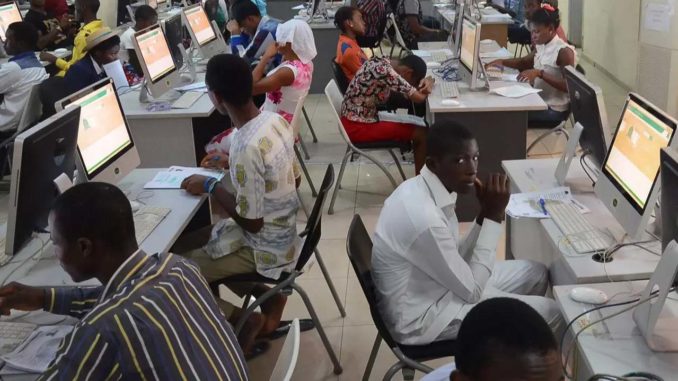
The decision by the Joint Admissions and Matriculation Board (JAMB) to suspend use of the National Identity Number (NIN) for registration of candidates for the 2020 Unified Tertiary Matriculation Examination (UTME) is not enough. NIN should not have been a requirement for candidates to register and sit for the examination, in the first place. So, the new policy should be cancelled, not suspended.
The plan to foist NIN on the 2021 UTME candidates should, therefore, be discarded altogether. Thousands of candidates have not heard of NIN and what it is all about. And it is not an easy number to obtain through national identity scheme by even the elite, let alone students.
Considering the difficulty associated with obtaining the National Identity Card and NIN, JAMB should not create undue bottlenecks for youngsters wishing to sit for its examination. If it is not easy for adults to get the National ID card, many years since it was launched, how would it be possible for youngsters in school to get?
Besides, there are foreign candidates who sit for the UTME who have no need for the NIN. Are they going to be exempted? That will give foreigners undue advantage against our own citizens.
Doubtless, citizens are being exploited financially by unscrupulous National Identity Management Commission (NIMC) staff at the registration centres. NIN is not supposed to be expensive but citizens are, reportedly, being forced to pay various and huge amounts of money for them to be registered.
The entire registration process is clumsy and ineffective. As such, citizens should not be made to bear the brunt of government failure to issue ID cards to Nigerians nearly 18 years since the project was launched.
JAMB, the other day bowed to public complaints and outcry over the frustrations and difficulties that candidates were subjected to before getting NIN. It decided to suspend the NIN requirement for the 2020 UTME but shifted it to 2021, when, according to it, candidates would have had enough time and opportunity to get the NIN. This is not feasible given the experience Nigerians have had with NIN registration process. That policy should be discarded outright.
According to the JAMB registrar, Prof. Ishaq Oloyede, “We were forced to review our strategies and we arrived at a point that it was obvious that we could not go ahead with NIN as pre-requisite for registration because of the challenges that might affect the participation of large number of candidates. To this end, we have decided to suspend the use of NIN for 2020 UTME exercise. We have unanimously agreed to shift the use of NIN to 2021 when candidates would have been given enough time and opportunity to get the NIN.”
Oloyede explained that the adoption of the number for registration was aimed at curbing multiple registration and other infractions during the conduct of its examinations…”
The NIMC DG, Aliyu Abubakar Aziz, said the commission needed 4,000 enrollment centres nationwide to carry out registration services anytime. This is against the reported 1,000 enrollment centres presently operated by NIMC, which is grossly inadequate to successfully register applicants.
JAMB had announced last September 2019, that it was working with the NIMC to ensure that candidates for the 2020 Unified Tertiary Matriculation Examination register for the National Identity Number. The JAMB Registrar, who disclosed this in Abuja then noted that NIN would work against all forms of “registration infractions, which is the foundation of examination malpractices.” He argued that the introduction of the NIN to UTME was in line with the directive of the Federal Government that the NIMC should be the primary data collection centre.
Certainly, this directive did not mean that candidates must have NIN to be able to register for public examinations; otherwise, it would apply to all candidates registering for WAEC, NECO and other similar examinations, and that would disenfranchise thousands of candidates.
Since JAMB made the announcement, thousands of prospective JAMB candidates besieged NIMC offices across the country to get registered but to no avail. All over the offices, there were long queues as more candidates trooped in.
The candidates lamented the stress they went through at NIMC offices with few computers and inadequate manpower. The crowd-pulling as a result of JAMB directive is unnecessary and avoidable. Requiring candidates to obtain NIN as pre-requisite for being registered for UTME is ill-informed and misguided.
It was good enough that the idea was dropped as that would have plunged this year’s UTME into avoidable crisis. JAMB would not have been able to cope with the barrage of complaints that would have besieged it from those who missed the entrance examination.
By now, JAMB ought to have attained stability in the process of conducting its examination. The use of computer-based test has made things easier. There is still room for improvement. Using computer ICT rather than putting wedge on the path of candidates who wish to take the examination could curb examination malpractices, which JAMB claimed to be fighting against.
END

Be the first to comment